The European Rewilding Network’s fifteenth webinar focuses on the finance of nature-based businesses and economies.
Rewilding Europe regularly organises webinars for the European Rewilding Network (ERN), which currently comprises 53 members from 25 European countries (including Rewilding Europe’s eight operational areas). Here they discuss rewilding-related topics and share insight and experience.
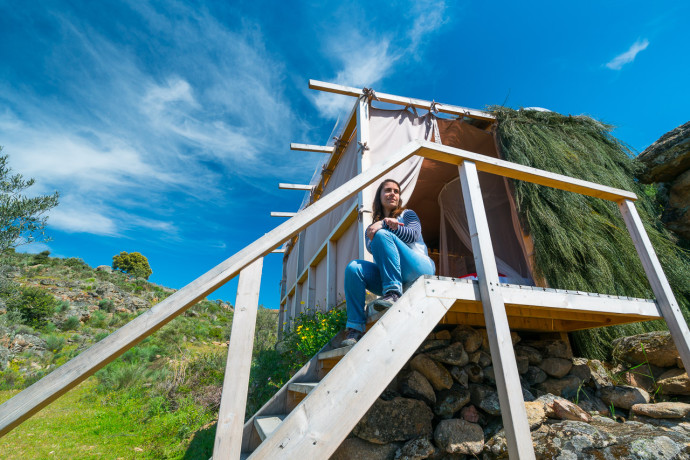
Iberian businesses supported by loans from Rewilding Europe Capital.
At the end of June, European Rewilding Network members from nine European countries came together online to discuss Rewilding Europe Capital (REC) and the success of REC-supported businesses in Portugal. They learned about the development of nature-based economies, Europe’s burgeoning nature-based tourism market, and the opportunities that REC now offers to ERN members.
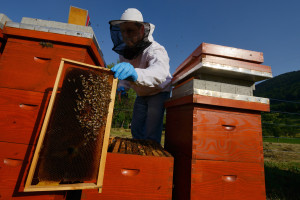
As Europe’s first rewilding enterprise funding facility, REC provides financial loans to new and existing businesses that are connected with wild nature. By driving positive environmental and socio-economic outcomes, these loans therefore support rewilding in the areas where they operate.
“The goal of REC is to demonstrate that rewilding can create thriving wildlife and nature-focused rural economies that generate new business opportunities, jobs and income for society,” explains Matthew McLuckie, Rewilding Europe’s Enterprise Development Manager. “Since launching in 2014, REC has financed 19 businesses in six European countries, with a commitment of over €500,000.”
McLuckie explained to webinar participants how REC selects which enterprises to support, as well as the fund’s economic. REC provides loans to small and medium-sized enterprises that catalyse, support or achieve positive environmental outcomes. These include businesses involved in natural forest regeneration, natural water systems, natural grazing, safe corridors for wildlife, natural habitat extension, the reduction of hunting and fishing pressure, operational support of wildlife breeding areas (including spawning sites), and the direct natural comeback of wildlife. More information can be found here.
McLuckie went on to describe three REC success stories from different sectors: the Lagosta Nature Reserve in Croatia, Stichting Tauros from the Netherlands, and the Linnunsou-Juakjoki catchment area in Finland.
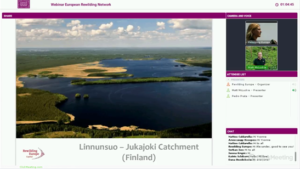
The webinar discussion focused mostly on the Linnunsou-Juakjoki catchment area, as this groundbreaking project was the first ERN member to receive a REC loan. Enabling the Finland-based Snowchange Cooperative to purchase the 110-hectare Linnunsuo wetland area in April, this investment represents the first of its kind, both in Finland and for REC. As the project moves forward, it will demonstrate how restored peat mines can create naturally functioning wetlands, benefitting local communities, commercial enterprises
and government agents through the generation of meaningful income from wildlife and the recovery of wild nature.
Following the recent signing of a €6 million Natural Capital Financing Facility deal with the European Investment Bank (EIB), REC is now strongly placed to provide financial support to many other businesses, including ERN members.
The EIB loan was provided to REC as the first project of the European Commission’s “Bank on Nature Initiative”. It not only means that investees operating in all 28 EU member states are now eligible for a REC loan, but also that larger loans are now possible. These could be used to support new nature-related business models in sectors such as forestry, water management and tourism.
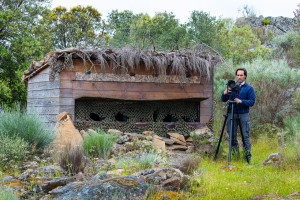
Pedro Prata, team leader of Rewilding Europe’s Western Iberia area, then took over to present a best case example on REC during the webinar. He demonstrated to participants how financial and operational support from REC has led to the creation of a “cluster” of complimentary enterprises in and around Faia Brava Nature Reserve in northern Portugal (these include Star Camp, Casa da Cisterna, Wildlife Portugal and Miles Away). With the reserve now welcoming more that 1000 visitors annually, revenue growth has been substantial since loans were disbursed.
“Through mutual collaboration, these businesses are pioneering rewilding and nature-based tourism in the area,” explains Prata. “All are equally committed to local nature and wildlife. By collecting a rewilding levy from guests and investing it in rewilding activities and land purchases to extend Faia Brava, they are the epitome of a successful nature-based business model.”
Since 2014, the European Rewilding Network has organised regular online seminars (webinars), covering various topics such as natural grazing, river restoration, rewilding, human-wildlife coexistence, communications, business
development, wildlife watching and nature-based tourism.
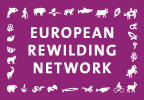 “The ERN is a fantastic network,” says Matteo Caldarella of the Rewilding Puglia project, located in the Italian Salso Lake Oasis area. “It really drives conservation and the restoration of natural areas through knowledge sharing and mutual support. It has proved invaluable in the selection and use of appropriate rewilding methodology.”
“The ERN is a fantastic network,” says Matteo Caldarella of the Rewilding Puglia project, located in the Italian Salso Lake Oasis area. “It really drives conservation and the restoration of natural areas through knowledge sharing and mutual support. It has proved invaluable in the selection and use of appropriate rewilding methodology.”
Rewilding Europe looks forward to supporting more ERN members through REC, and encourages rewilding initiatives across Europe to apply for ERN membership. Please view this page for more information on application.
